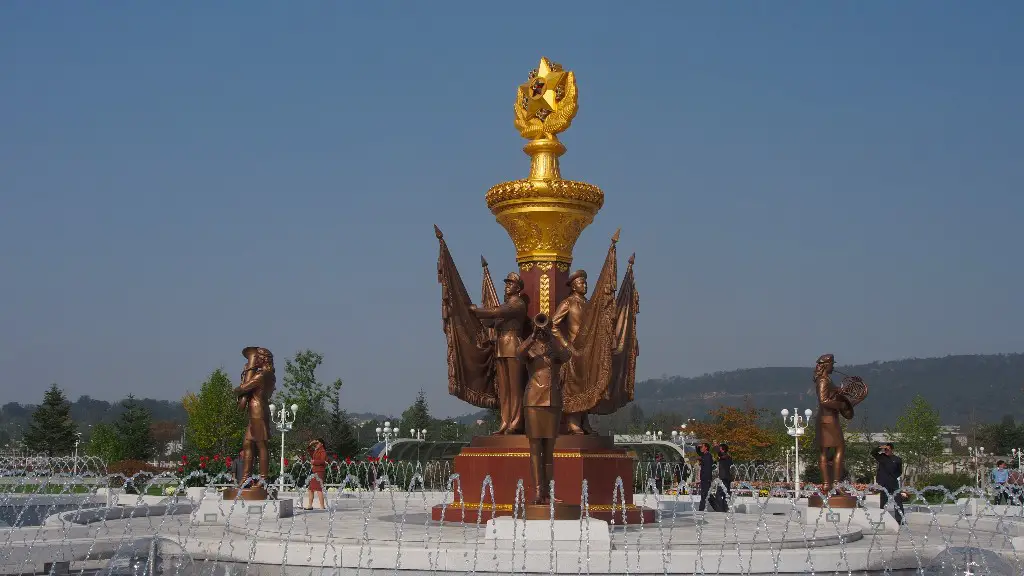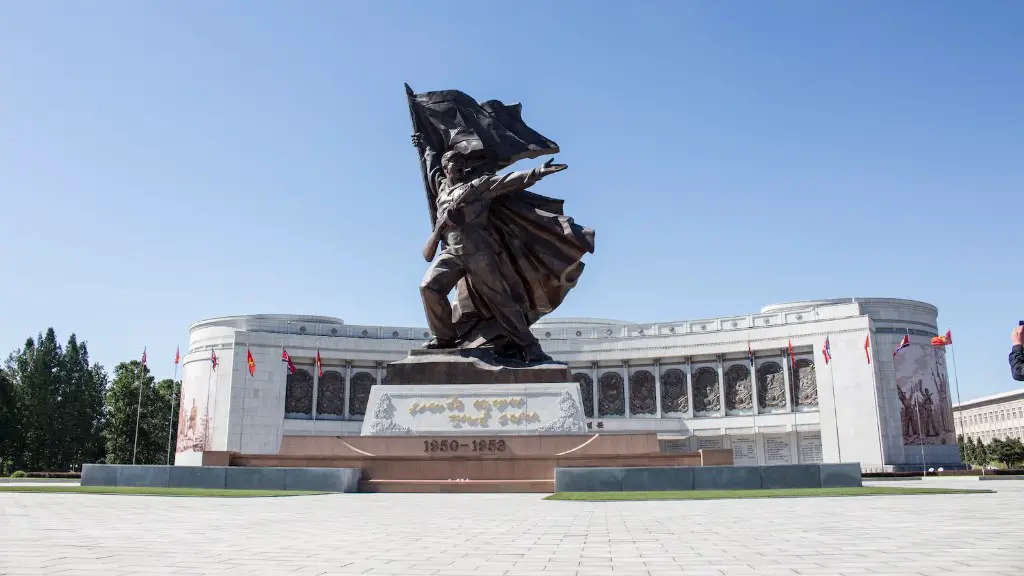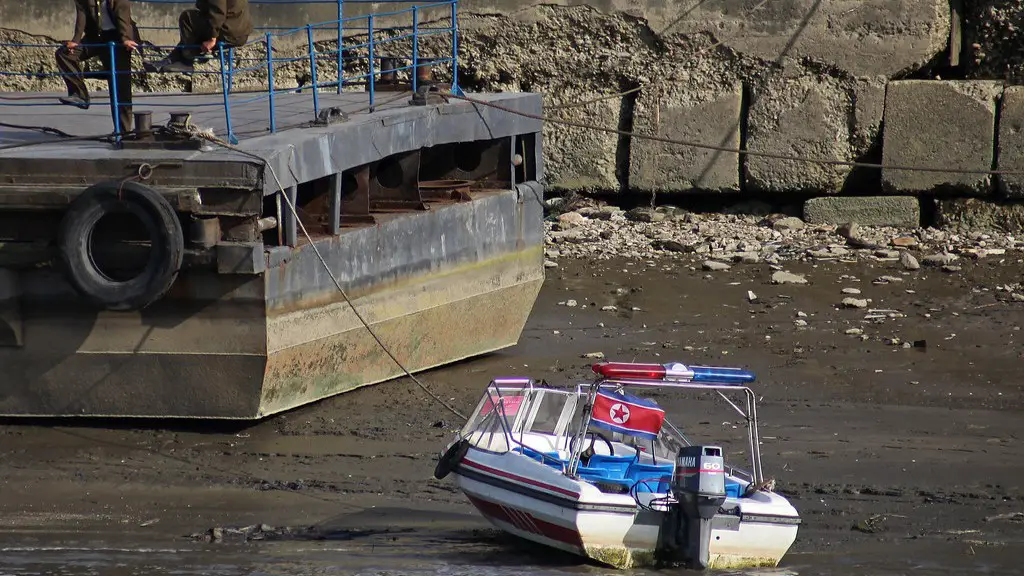Will North Korea strike first? It’s a question on the minds of many Americans in light of North Korea’s recent threats to attack US interests in the region. North Korea has a long history of saber-rattling and provocation, so the stakes are high when it comes to preventing an armed conflict.
According to experts, North Korea is a totalitarian regime that is determined to remain in power at all costs, even if that means attacking the US and its allies. North Korea has become increasingly unpredictable in recent years, and its leaders have made numerous threats and issued alarming ultimatums that have raised alarms in the international community.
The US has responded by deploying an aircraft carrier strike group to the region, conducting joint military exercises with South Korea and Japan, and strengthening economic sanctions against Pyongyang. But these measures have not deterred the North Korean regime from its aggressive posture.
The bottom line is that North Korea is willing to use any means necessary to stay in power, and that includes attacking the US and its allies if it perceives them as a threat. So the question of whether North Korea will strike first remains an open one.
From an economic perspective, North Korea faces an untenable situation. Its economy is heavily dependent on foreign aid and support, which has been severely curtailed in the wake of US-led sanctions. This has left the North Korean regime with fewer resources to support its military and maintain its grip on power.
Additionally, North Korea is facing increasing pressure from the international community, which is unlikely to back off in the near future. The US and its allies have made it clear that any attack on US interests in the region would be met with swift and decisive action.
Evaluating the Risk
It’s impossible to predict whether or not North Korea will actually carry out an attack, as the regime is highly unpredictable and its leaders’ motives are often difficult to predict. However, many factors can help to assess the risk of a North Korean attack.
For starters, North Korea has a long history of saber-rattling and provocation, and they often use these tactics to gain leverage on the international stage. This is why the US and its allies have moved to strengthen economic sanctions against North Korea and deploy additional military resources to the region.
Experts also point to North Korea’s economic situation as another factor that could influence the decision to launch an attack. The country’s economy is heavily dependent on foreign aid and support, and if this were to be cut off, it could lead to severe economic hardship—and potentially even military conflict—for the North Korean regime.
Finally, it’s important to note that the North Korean regime is intent on maintaining its grip on power at all costs. This means that the regime could use any means necessary to stay in power, including attacking the US and its allies if it perceives them as a threat.
Political and Military Options
The US and its allies are faced with the difficult task of reigning in North Korea’s increasingly belligerent behavior, while simultaneously avoiding an armed conflict. In this regard, the US and its allies have several diplomatic, economic, and military options at their disposal.
The US and its allies have already deployed an aircraft carrier strike group to the region, conducted joint military exercises with South Korea and Japan, and strengthened economic sanctions against North Korea. These measures have been largely successful in deterring North Korea’s aggressive posture thus far, but they may not be enough to convince the regime to abort its plans for an attack.
Experts also suggest that the US and its allies could pursue diplomatic talks with the North Korean regime in order to prevent a conflict. Negotiations could help resolve outstanding issues and de-escalate tensions in the region, but both parties would need to be willing to compromise in order for this to be successful.
Finally, if diplomatic solutions fail, the US and its allies may be forced to resort to military action in order to contain North Korea and defend US interests in the region. If a North Korean attack were to occur, the US and its allies would be prepared to respond swiftly and decisively.
Public Opinion
Public opinion on the North Korean situation varies widely, with many Americans expressing concern that the US and its allies are not doing enough to de-escalate tensions in the region. Others have expressed support for the Trump administration’s hardline stance against North Korea, citing the need to contain the threat posed by the North Korean regime.
At the same time, some skeptics have pointed out that an armed conflict between the US and North Korea would be devastating for both sides, and that diplomacy is the wiser option in this situation. These skeptics have encouraged the US and its allies to pursue diplomatic solutions and engage in negotiations with the North Korean regime in order to de-escalate tensions and avert an armed conflict.
Still, other commentators are more pessimistic, arguing that the US and its allies have few good options in this situation. These commentators have called for a more aggressive stance, arguing that military action may be the only way to contain the North Korean threat and prevent an attack.
Relation with South Korea
It is important to note that the North Korean situation has a direct bearing on the US’s relations with South Korea. North Korea’s aggressive actions have strained the US’s relations with its longtime ally, and the US has had to take steps to appease Seoul while simultaneously asserting its own interests in the region.
The US and South Korea have conducted joint military exercises in recent months in an effort to demonstrate a united front against the North Korean threat. In addition, the US has sought to reassure the South Korean government of its commitment to defending the Korean peninsula, and has offered economic and military assistance to South Korea in order to improve the country’s defenses.
At the same time, the US has also been careful to maintain a balanced approach towards the North Korean situation, as overly aggressive measures could further escalate tensions in the region. The US and its allies have been clear that they are determined to prevent a conflict, while also ensuring that North Korea’s aggressive behavior is contained.
The Role of China
Perhaps the most important player in this situation is China, which has long been a major economic and political ally of North Korea. As such, China has a unique opportunity to influence Pyongyang’s behavior and restrain its aggressive stance.
China has taken steps to pressure the North Korean regime, including implementing economic sanctions, halting food aid, and supporting UN resolutions against the country. These measures, however, have so far failed to deter North Korea from its aggressive posture.
The US has thus far been reluctant to escalate tensions with China, as it does not want to risk undermining its ties with Beijing. However, the US has made it clear that it expects China to do more to hold North Korea accountable and deter any potential attack.
At the same time, the US and its allies must also be prepared to take decisive action if North Korea chooses to launch an attack. The US and its allies have already made substantial preparations in the event of a conflict, and they must remain vigilant and ready to act.





